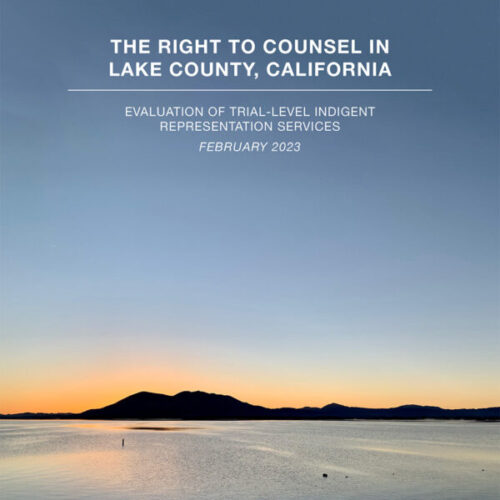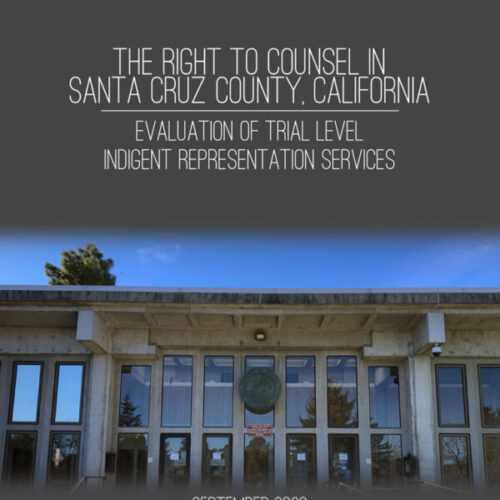California
The state of California delegates to its local governments the responsibility for funding and administering indigent defense services in adult criminal trials. The state has no entity to exercise oversight of the delivery of these services.
The state of California funds all indigent defense services for adult criminal cases in its appellate courts. The judiciary administers most indigent appellate representation through contracts with non-profit law firms, and a state agency administers the rest. The state has no commission providing oversight of the non-profits, the judiciary, or the agency.
-
58 Counties Locally Funded
-
58 Counties Locally Administered
-
58 Counties with No State Oversight
-
58 Counties State Funded
-
58 Counties State Administered
-
58 Counties with No Commission and Limited Authority
Every county in California is responsible for determining how it funds and administers trial-level indigent defense services. Either the county board of supervisors, the superior court judges in the county, or both together, determine the method of delivery, which can be any combination of a public defender office, contracts with private attorneys, or private attorneys appointed on a case-by-case basis. Counties with a public defender office determine whether the chief public defender is elected or appointed. Private attorneys can contract with the county board of supervisors or the local judges and may be paid on an hourly or flat fee basis.
The state of California does not have a state commission or agency responsible for providing oversight of trial-level indigent defense. There is the Office of the State Public Defender, which provides services in capital appeals; this agency also provides training and support to county indigent defense systems. State law permits state reimbursements for some costs incurred by counties, subject to funding by the state legislature.
The state’s judicial council must develop rules for providing appellate services to all indigent defendants in noncapital appeals. Per the judicial council’s rules, each of California’s six courts of appeals must adopt procedures, subject to council approval, for appointing counsel in noncapital appeals in its district. All six appellate courts have chosen to contract with a nonprofit law firm to maintain a panel of private attorneys, appoint them to cases, and evaluate their performance. Each law firm also provides some direct representation through staff attorneys. The law firms are also responsible for juvenile, dependency, and mental health appeals.
The Office of the State Public Defender (OSPD) provides direct indigent defense services in only some capital appeal cases. OSPD has two regional offices with staff attorneys. The governor appoints a state public defender to lead OSPD. The agency can also deliver appellate services in noncapital cases, but its priority is capital appeals. If OSPD is unavailable, the state supreme court can appoint a qualified private attorney to a capital appeal. All appellate services for indigent defense are funded by the state of California.

Dig Deeper
How does the state disseminate funding, when it is allocated, to local government?
What rules must counties follow when establishing a public defender office?
How does a county establish a private attorney system?
What are the nonprofit law firms providing appellate services in noncapital cases in California?
What is the California Appellate Project San Francisco and what does it do?
Under what circumstances can the Office of the State Public Defender provide noncapital appellate representation?
How is the state public defender selected?
Are there standards for providing appellate representation?
How are the private attorneys on the nonprofit law firms’ panels compensated?
Support Our Work
Criminal justice issues that disproportionately harm poor people, such as wrongful convictions and over-incarceration, cannot be fixed if indigent defendants are given attorneys who do not have the time, resources, or qualifications, to be a constitutional check on government. Yet, investment in improving indigent defense services remains largely neglected. The Sixth Amendment Center is the only nonprofit organization in the country that exclusively examines, uncovers, and helps fix the root of the indigent defense crisis in which inequality is perpetuated because poor defendants do not get a fair fight.
The Sixth Amendment Center is a tax-exempt 501(c)(3) nonprofit organization under EIN: 45-3477185.
Donations are tax-deductible to the fullest extent allowable under the law.








